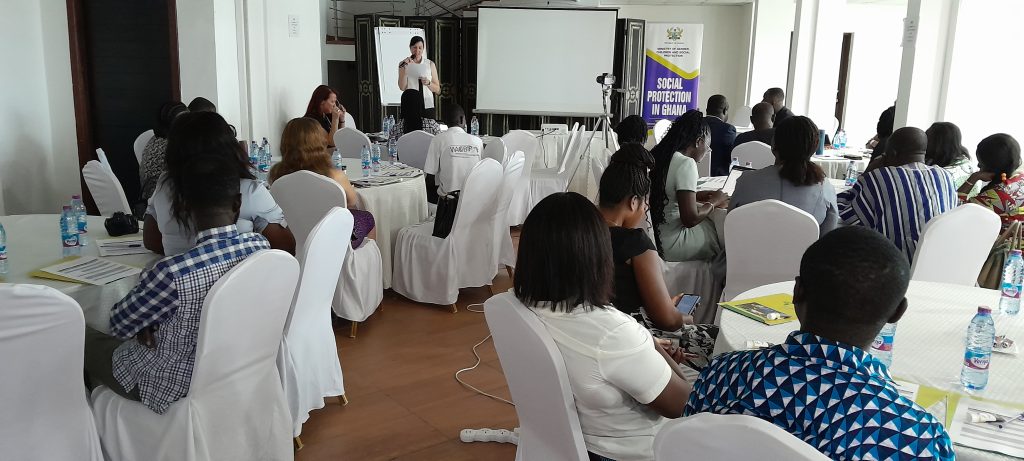By Muniratu Akweley Issah
Accra, June 07, GNA – The Ministry of Gender, Children and Social Protection (MoGCSP), has been urged to strengthen existing social protection interventions to alleviate challenges affecting the vulnerable, particularly women.
Dr. Maria Klara Kuss, a Consultant at UNICEF, noted that some Ghanaian women continued to face several social, economic and financial challenges, rendering them poor, less productive and less likely to contribute to the growth of the economy.
The consultant said this in a presentation of a research finding at a validation meeting of the roadmap to strengthen the gender and shock-responsiveness of Ghana’s social protection system, organised by the Ministry of Gender, Children and Social Protection (MoGCSP) in collaboration with UNICEF.
She said to improve the living condition of the people, economic shock, old age vulnerability, gender-based violence, teenage pregnancy and child marriage, unpaid care work and low participation in decision making must be addressed.
The Ministry, by its mandate is expected to review and critically identify and capture the actual category of people that need to benefit from sociall interventions such as the School Feeding Programme, Livelihood Empowerment Against Poverty (LEAP) and National Health Insurance Scheme (NHIS).

Madam Zuweira Abudu, Minister of Gender, Children and Social Protection (MoGCSP), noted that the six critical areas in the roadmap had highlighted and reflected on challenges and differences that marginalised groups in the Ghanaian society faced.
She said it also suggested potential solutions to address those challenges to close the vulnerability gap.
Madam Abudu was hopeful that the critical scrutiny by stakeholders and deliberations would ensure that all measures and solutions would be taken into consideration to strengthen the gender and shock-responsiveness of Ghana’s social protection system.
Some stakeholders said the validation was necessary because many people in communities were not benefiting from the interventions although they qualified.
Dr. Esther Ofei Aboagye, a Policy Analyst, told the Ghana News Agency that the validation was very important because it would help draw attention on vulnerable people and the appropriate support.
“We have to make sure that whatever interventions we are providing meet the specific needs. Some people need more financial support, others also need other forms of support so how do we reorient our social protection to meet their needs, and this process has rightly identified the gaps,” she said.
GNA